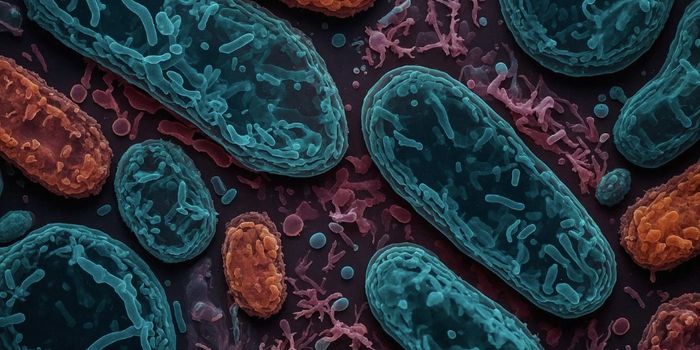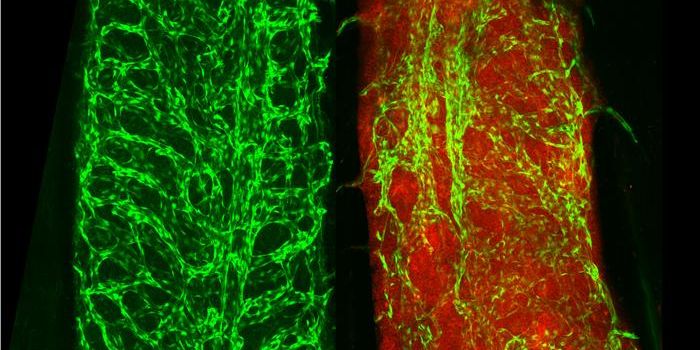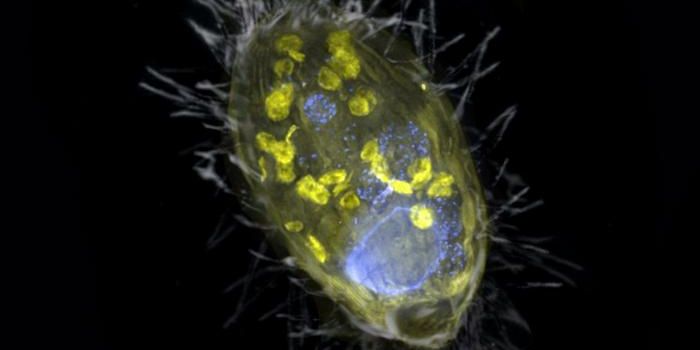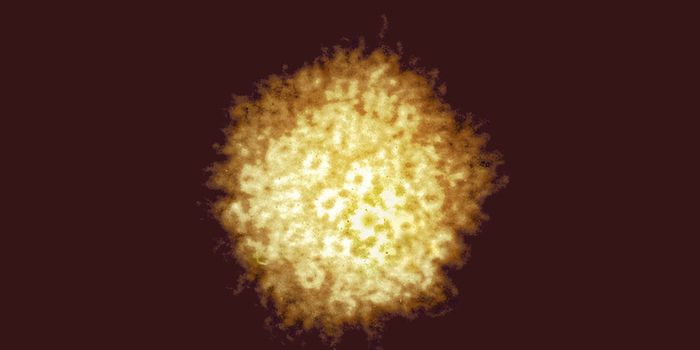Engineering 'Smart' Cells to Kill Cancer
Cancer researchers have long been searching for a way to engineer immune cells so that can efficiently target cancer cells while ignoring healthy cells. A team of scientists have now looked to machine learning and combined it with cell therapy technologies to help create such a therapeutic.
With machine learning, scientists in the lab of Wendell Lim, Ph.D., at the UCSF Cell Design Initiative and Center for Synthetic Immunology scoured databases that contained data on proteins found in healthy and cancerous cells. They were looking for combinations of proteins that were only found on cancer cell surfaces and could be used to specifically target them. The work was reported in Cell Systems by members of Lim's lab and scientists at Princeton University.
Another paper reported in Science by Lim and colleagues showed that this computational data can indeed be used to design more effective cell therapies to treat cancer.
"Currently, most cancer treatments, including cell therapies, are told 'block this,' or 'kill this,'" said Lim, who is also a professor and chair of cellular and molecular pharmacology. "We want to increase the nuance and sophistication of the decisions that a therapeutic cell makes."
CAR T cell therapy has long been a focus of cancer research; the aim is to take immune cells from a cancer patient, engineer them to be better at recognizing 'antigens' or molecules on the surface of cancer cells, and return them to the patient to do their work. But there are challenges to this approach, including the microenvironment that a tumor creates, which can impede the efficacy of CAR T cells.
This research used a tool called synNotch to program instructions into immune cells. Like in CAR T cell therapy, the intent is to make them better at recognizing antigens that are only found on cancer cells to target them. But this time, the engineered cells would look for a combination of antigens that are only on cancer cells instead of a single antigen.
The scientists used this method to program T cells to destroy cancerous kidney cells that express two antigens: CD70 and AXL. CD70 is also present in healthy immune cells, and healthy lung cells carry AXL, but the engineered T cells only targeted cancerous cells that carried both.
"The field of big data analysis of cancer and the field of cell engineering have both exploded in the last few years, but these advances have not been brought together," said study collaborator and computer scientist Olga G. Troyanskaya, Ph.D., of Princeton's Lewis-Sigler Institute for Integrative Genomics. "The computing capabilities of therapeutic cells combined with machine learning approaches enable actionable use of the increasingly available rich genomic and proteomic data on cancers."
"This work is essentially a cell engineering manual that provides us with blueprints for how to build different classes of therapeutic T cells that could recognize almost any possible type of combinatorial antigen pattern that could exist on a cancer cell," said Lim.
SynNotch can be used in complex configurations; for example, a synNotch receptor on a cell can identify antigen A, and when it does, it triggers the cell to make a synNotch to recognize antigen B. Together, these events lead to the production of a CAR to recognize antigen C, and a T cell that must find all three antigens together to target a cell for destruction.
The research team was able to kill cancer cells that carried certain markers. When mice modeling solid tumors were treated with T cells that were engineered with synNotch, the T cells were able to identify the antigen combination carried by the tumor cells and target them.
"You're not just looking for one magic-bullet target. You're trying to use all the data," Lim said. "We need to comb through all of the available cancer data to find unambiguous combinatorial signatures of cancer. If we can do this, then it could launch the use of these smarter cells that really harness the computational sophistication of biology and have [a] real impact on fighting cancer."
Sources: AAAS/Eurekalert! via University of California - San Francisco, Cell Systems, Science









